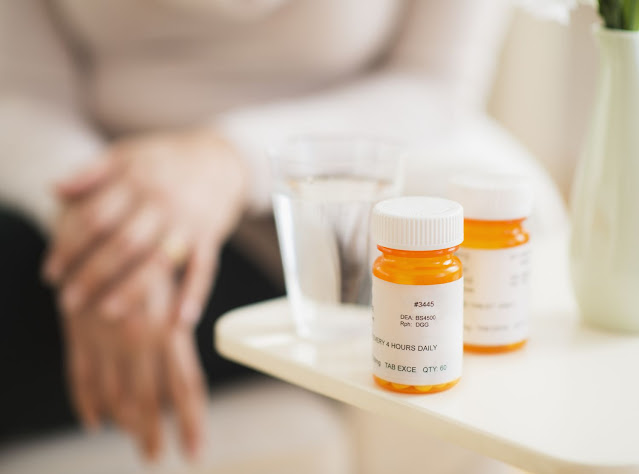Lexapro is a popular antidepressant that works by boosting your serotonin levels, a brain chemical that affects your mood and emotions. Lexapro can help you feel less depressed and anxious, and enjoy life more. But Lexapro is not a magic pill that comes without any drawbacks. Lexapro can also cause some side effects that may bother you or even harm you. In this article, we will tell you what you need to know about the good and the bad of Lexapro, how to deal with the side effects, and when to get help.
The good news about Lexapro
The bad news about Lexapro
According to Drugs.com, Lexapro can also cause some side effects that may range from mild to severe. Some of the common side effects of Lexapro that may affect up to 10% of people who take it are:- Nausea
- Diarrhea
- Constipation
- Dry mouth
- Sleepiness
- Dizziness
- Headache
- Trouble sleeping
- Sexual problems
- Weight changes
These side effects are usually not a big deal and tend to go away on their own as your body gets used to the medication. But if they last longer than a few weeks or make your life difficult, you should talk to your doctor about changing your dose or trying a different medication. You should also let your doctor know if you have any allergic reactions to Lexapro, such as rash, itching, swelling, or trouble breathing.
Some of the rare side effects of Lexapro that may affect less than 1% of people who take it are:
- Abnormal bleeding or bruising
- Seizures
- Low sodium levels in the blood (hyponatremia)
- Serotonin syndrome (a dangerous condition caused by too much serotonin in the body)
- Increased risk of suicidal thoughts or actions (especially in kids, teens, and young adults)
- Mania or hypomania (a state of extreme mood or energy)
- Glaucoma (high pressure in the eye)
- Liver problems
- Low blood sugar (hypoglycemia)
- Unusual bleeding or bruising
- Passing out
- Confusion
- Hallucinations
- Agitation
- Fever
- Sweating
- Shivering
- Muscle stiffness
- Tremors
- Fast or irregular heartbeat
- Severe nausea or vomiting
- Diarrhea
- Changes in vision
- Yellowing of the skin or eyes
- Dark urine
- Abdominal pain
- Extreme thirst or hunger
- Weakness or tiredness
How to handle the side effects of Lexapro
The best way to handle the side effects of Lexapro is to follow your doctor's advice on how to take it. You should take Lexapro exactly as prescribed by your doctor, at the same time every day, with or without food. You should not stop taking Lexapro suddenly without talking to your doctor, as this may cause withdrawal symptoms such as dizziness, headache, nausea, irritability, and anxiety. You should also avoid drinking alcohol or using illegal drugs while taking Lexapro, as they may make your side effects worse or interact with your medication.Some lifestyle changes may also help you handle the side effects of Lexapro. For example:
- To prevent nausea, you can try eating smaller meals more often, drinking lots of fluids, and avoiding spicy or fatty foods.
- To prevent constipation, you can eat more foods that are high in fiber such as fruits, vegetables, whole grains, nuts, and seeds. You can also drink more water and exercise regularly.
- To prevent dry mouth, you can chew sugar-free gum or candy, sip water throughout the day, and use a humidifier or a saline spray to moisten your nose.
- To prevent sleepiness or dizziness, you can avoid driving or operating machinery until you know how Lexapro affects you. You can also get enough sleep at night and avoid caffeine or other stimulants during the day.
Here is a possible continuation of the rewrite:
- To prevent headache, you can drink lots of water and avoid dehydration. You can also use over-the-counter painkillers such as acetaminophen or ibuprofen.- To prevent sexual problems, you can talk to your partner about your feelings and expectations, and try other ways of intimacy and pleasure. You can also ask your doctor about changing your dose or switching to another medication that may have less impact on your sexual function.
- To prevent weight changes, you can check your weight regularly and keep a healthy diet and exercise routine. You can also see a nutritionist or a dietician for tips on how to manage your weight while taking Lexapro.
- To prevent suicidal thoughts or actions, you should get help from a mental health professional as soon as possible. You should also tell your family and friends about your condition and ask them to support you and watch out for any signs of worsening depression or suicidal thoughts. You should also call the National Suicide Prevention Lifeline at 1-800-273-TALK (8255) or text HOME to 741741 if you feel hopeless or in crisis.







No comments:
Post a Comment